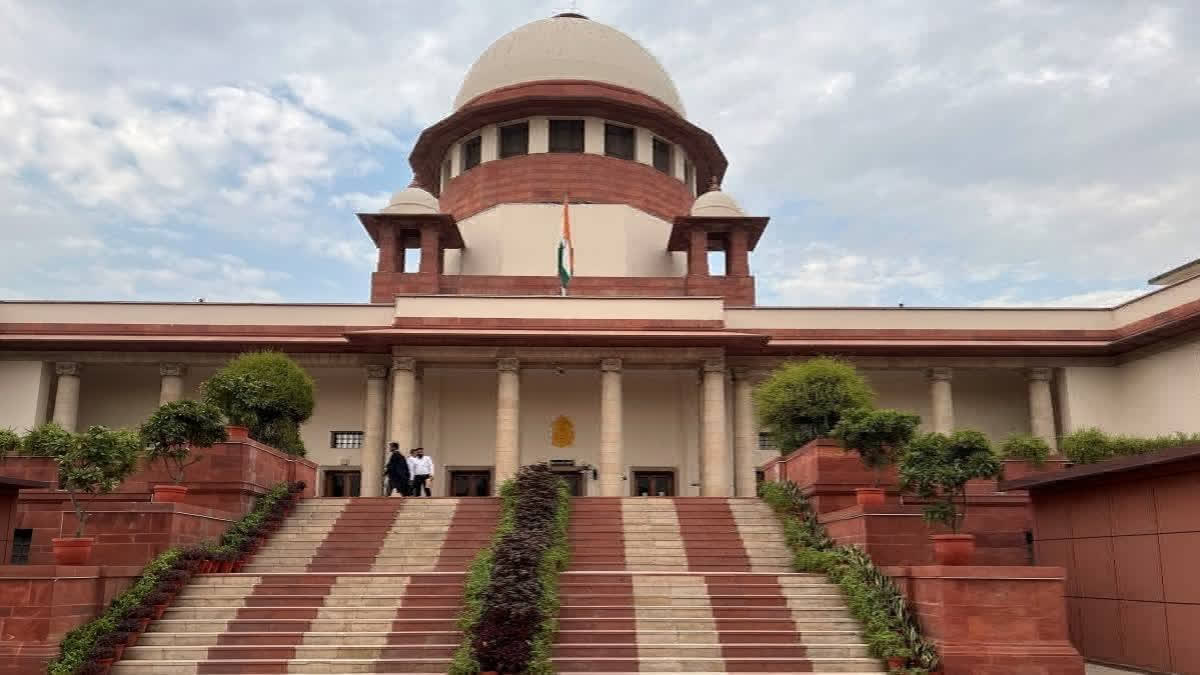New Delhi: The Supreme Court Tuesday upheld a Delhi High Court order ordering, which said the decision to cap the number of visits by prisoners’ families, friends, and legal advisers to twice a week has been taken considering the number of inmates.
A bench comprising Justices Bela M Trivedi and Pankaj Mithal said it was not inclined to interfere with the High Court order as it was a policy decision. The plea filed by advocate Jai A Dehadrai and others contended that the HC failed to appreciate that the arbitrary capping of the incarcerated undertrials’ right to confer with their legal representative flies in the face of doctrine of progressive realisation of rights.
"The High Court failed to appreciate that Rule 585 of the Delhi Prison Rules, 2018 flies directly in the face of doctrine of non-retrogression which states that there should be no scope of regression of rights in a progressive society," said the plea filed in the top court.
"That the High Court failed to consider that as per the National Crime Records Bureau Report dated 24.12.2021 - the undertrial prison population in Delhi is 14,506 inmates out of the total population of 15,976; as per India Justice Report, 2022 - 9 out of 10 prisoners in Delhi are undertrials; Prison Profile of Tihar Central Jail, New Delhi indicates that the underprivileged prisoners account for 78.9 per cent of Delhi's population (where the monthly income does not exceed an amount of Rs. 8,000/-)," said the plea.
"The profile further reports that 66 per cent of the inmate population have education qualification below Xth standard - thus indicating another subset of vulnerable groups within an already vulnerable class of persons. Therefore, restrictions on undertrial rights to interact with their legal representatives is not only arbitrary, rather, it is also patently discriminatory," said the plea.
In February, last year, the HC had said the decision had been taken after careful consideration of the facilities available in prisons, availability of staff, and the number of undertrials. The HC, declining to pass any order issuing writ of mandamus, had stressed that in matters of policy, the courts do not substitute its own conclusion with the one arrived at by the government merely because another view is possible.
The HC judgment had come while disposing of a petition challenging certain provisions of the Delhi Prison Rules, 2018. Dehadrai’s plea had prayed for amendment of the rules to allow interviews with legal advisers to be open from Monday to Friday for an appropriate allotted time with no cap on interviews per week. The petitioner, in the interim, had prayed for visits of the legal counsel to their clients in Delhi prisons more than twice a week.
- " class="align-text-top noRightClick twitterSection" data="">
Read More



